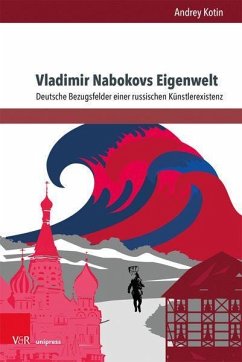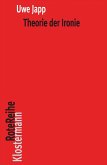Obwohl Vladimir Nabokovs Haltung gegenüber Deutschland zwischen kühler Distanz und glühender Ablehnung schwankte, lassen sich sowohl im Leben als auch im Werk des herausragenden russisch-amerikanischen Schriftstellers verschiedene »deutsche Tropen« beobachten. Dabei geht es nicht nur um mehrere Romane, die in Berlin spielen. Andrey Kotin hat es sich in diesem Band zum Ziel gesetzt, den deutschen Bezugsfeldern im Leben und Schaffen eines der bedeutendsten Schriftsteller des 20. Jahrhunderts nachzugehen. Dabei geraten Aspekte in den Blickpunkt wie etwa Berlin als Handlungsort von Nabokovs russischsprachigen Romanen, (neu)romantische Motive seiner Prosa und Poesie, Hannah Arendts Philosophie des Bösen sowie eine umfassende vergleichende Analyse von Nabokovs »Einladung zur Enthauptung« und Franz Kafkas »Der Prozess«.
Although Vladimir Nabokov's attitude towards Germany alternated between cool distance and ardent disapproval, both in the life and work of the preeminent Russian-American writer various "German tropes" can be observed. This is not merely a matter of several novels which are set in Berlin. Equally interesting are Nabokov's views regarding the nature of evil and totalitarianism, confronted with the philosophy of Hannah Arendt. Another essential aspect concerns Romantic motifs in "The Defence" and "Lolita", here viewed under the auspices of specifically German Romanticism (Ludwig Tieck, Friedrich de la Motte Fouqué, E.T.A. Hoffmann). A separate chapter has been dedicated to a comparative analysis of "Invitation to a Beheading" and Franz Kafka's "The Trial".
Hinweis: Dieser Artikel kann nur an eine deutsche Lieferadresse ausgeliefert werden.
Although Vladimir Nabokov's attitude towards Germany alternated between cool distance and ardent disapproval, both in the life and work of the preeminent Russian-American writer various "German tropes" can be observed. This is not merely a matter of several novels which are set in Berlin. Equally interesting are Nabokov's views regarding the nature of evil and totalitarianism, confronted with the philosophy of Hannah Arendt. Another essential aspect concerns Romantic motifs in "The Defence" and "Lolita", here viewed under the auspices of specifically German Romanticism (Ludwig Tieck, Friedrich de la Motte Fouqué, E.T.A. Hoffmann). A separate chapter has been dedicated to a comparative analysis of "Invitation to a Beheading" and Franz Kafka's "The Trial".
Hinweis: Dieser Artikel kann nur an eine deutsche Lieferadresse ausgeliefert werden.








